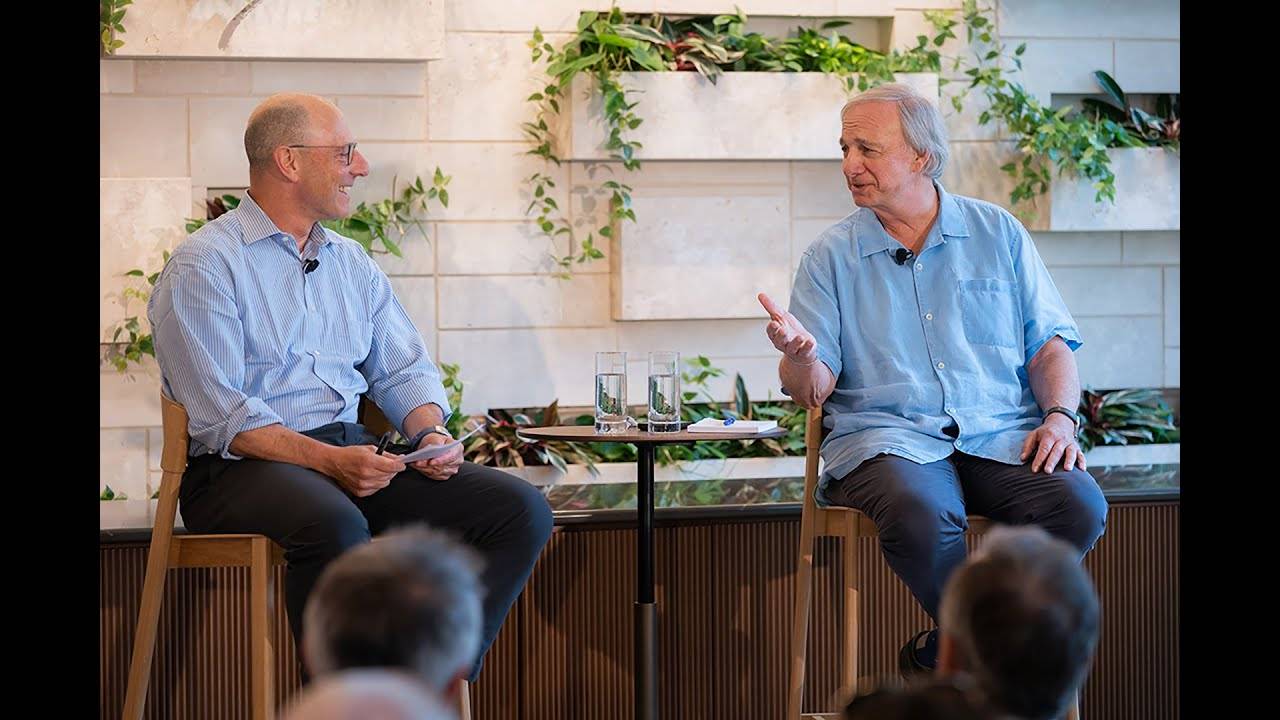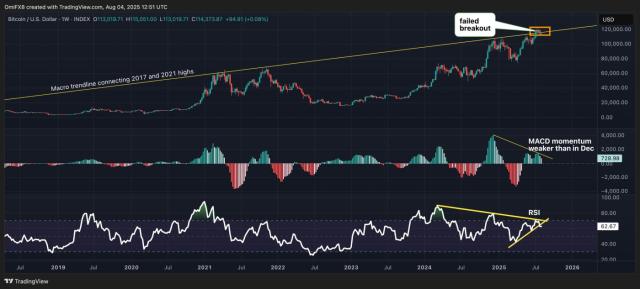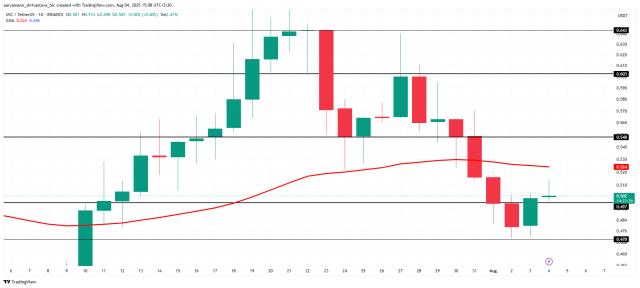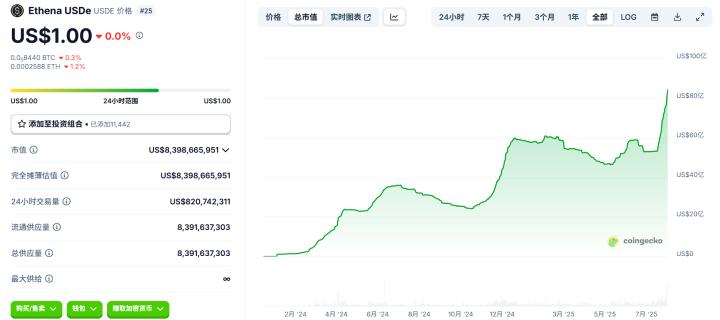Compiled & Translated by: TechFlow

Guest: Ray Dalio, Founder of Bridgewater Associates
Host: Jim Haskel, Customer Service Manager
Podcast Source: Bridgewater Associates
Original Title: Ray Dalio Reflects on Bridgewater's 50-Year Anniversary
Broadcast Date: August 1, 2025
A few weeks after officially leaving Bridgewater Associates, Ray Dalio returned to the public eye with a reflective dialogue at the 50th anniversary celebration in late July 2025, marking his elegant transition from leader to mentor.
This legendary investment figure reviewed the half-century journey from a basement startup in 1975 to leading the world's largest hedge fund, emphasizing how his philosophy of "pain plus reflection equals progress" forged diverse investments and a unique culture.
Despite selling his remaining equity and leaving the board, Dalio shared early setbacks (such as lessons from the 1982 debt crisis) and key turning points (like foreseeing the 2008 financial storm) in a mentorship role, reminding successors to cherish meaningful relationships and humility in uncertainty.
This dialogue is not only a vivid footnote to Bridgewater's history but also Dalio's farewell gift to the future of investment.
TechFlow has compiled and translated the entire conversation, as follows.
In our relationship with clients, we focus on daily observations. For example, clients almost always need our advice and want to understand the latest market developments. At that time, I was in the basement, communicating with clients via telegraph. I would dictate the telegraph content, and then have my assistant type and send it. Through this method, we established close connections with clients, understood their needs, and to some extent managed their investment accounts. This work made me very satisfied, and I still feel that way when I recall it now. However, it was obviously unsustainable in the long term, as I couldn't handle everything personally. Therefore, we proposed the concept of client advisors to help clients better manage their assets.
Jim Haskel:
Before Bridgewater transformed into a fund management company, let's discuss a period you often mention. From 1979 to 1982, you gained some reputation for predicting that Paul Volcker's interest rate hike might lead to an economic recession. However, it turned out you were wrong. Can you talk about that period and what you learned from it?
Ray Dalio:
In 1979 and 1980, I calculated that US banks were lending more to countries than they could repay, along with interest rates, etc. I realized we would face a debt default. In August 1982, Mexico defaulted on its debt. In the following decade, many other countries also defaulted. At the time, I believed we would experience a debt crisis, and I was terribly wrong.
In August 1982, when Mexico defaulted on its debt, my judgment about debt was not wrong, but I was mistaken about the market's impact. I thought the market would decline, but it rose dramatically instead. As a result, I lost money for both myself and my clients. I had to lay off employees and was eventually left alone. At that time, I wondered what I should do. Should I put on a tie and take the train into the city, or what should I do? That was one of the most important learning experiences of my life. It taught me the principle that "pain plus reflection equals progress".
I learned several crucial lessons that would change my future. First, I learned humility, began to question my own judgments, and recognized the possibility of being wrong. Second, I understood the power of diversification, realizing that investing in 15 uncorrelated revenue streams could significantly reduce risk without reducing returns. Lastly, I recognized the importance of building an environment centered on principles. These lessons became the foundation of Bridgewater, and from that low point, we rebuilt the company's direction. Despite some subsequent challenges, Bridgewater's overall performance has remained very stable. These experiences deeply influenced our portfolio design and company development model.
Jim Haskel:
Regarding team building, in 1986, Bob joined the company, even earlier than the start of these businesses. Bob, Giselle Wagner, and Dan Bernstein subsequently joined Bridgewater. How did you attract these outstanding talents to Bridgewater? After all, Bridgewater was not as influential as some well-known brands at that time.
Ray Dalio:
Everyone has their own story. Bob was working at First Oklahoma Bank at the time, which was a very interesting experience. He wrote me a letter, and I had a newsletter subscription that cost $290. Bob subscribed to this newsletter and later paid $18,000 to obtain my consulting services. He was only 27 years old at the time, but he was already an exceptional talent.
[The rest of the translation follows the same professional and accurate approach, maintaining the original structure and meaning while translating to English.](TechFlow Note: "Pulling on a string" in the market usually refers to a strategy or behavior that means influencing or driving larger changes through small, gradual efforts. This strategy can be used in investment, marketing, or other business activities, emphasizing guiding market trends or consumer behavior through subtle adjustments or actions.)
Ray Dalio:
2008 was a crash, but in 2009, I really didn't know what would happen.
Jim Haskel:
You were emphasizing internally at the time that the higher the debt, the more sensitive to interest rates. Therefore, further interest rate cuts must be made, but with limited space. That's the problem, right? So, let's go back to 2007. I remember at that time, many people came to us.
Ray Dalio:
Banks and brokers were in serious trouble. Yes, we went through these events, and then our predictions were correct. Then we helped others, such as the head of Standard & Poor's. He needed to give ratings, and we reviewed his ratings and pointed out problems, like his ratings not matching market marks, etc. So many people started seeking our help. I think this might be what you mentioned.
Jim Haskel:
Let's go back to 2007 and early 2008. Looking back, how confident were you that we had grasped the market situation and understood the severity of the problem? Even when others were just beginning to realize or had not yet understood, how confident were you in your own judgment?
Ray Dalio:
I learned humility from my own experiences and learned to be afraid of making mistakes. At the time, the situation did indeed match our predictions, and similar things had happened before, so everything seemed reasonable. But the key is how much confidence and resources you will invest in this. So when you ask about my confidence level, my habit is to first create a prediction template, judge how things might develop, and then track the actual situation based on this template. The situation at the time did indeed match this template, but you still need to observe how the market will react. I would say I was about 70% confident.
(Translation continues in the same manner for the entire text)Out of curiosity, I went to China and helped them establish markets and develop relationships. These dimensions can now continue to be passed down. Similar situations have occurred in other countries, such as Indonesia, which needs help with a new sovereign wealth fund. We need to think about how to build these relationships. So before continuing your question, I want to emphasize this point.
Looking to the Future: Bridgewater's Generational Inheritance and Principle Continuation
Jim Haskel:
One last question. Now that we are celebrating Bridgewater's 50th anniversary, the next 50 years will be driven by the people in this room and the team on the screen. I want to ask what key principles you think we need to internalize to improve the chances of short-term and long-term success and help Bridgewater continue moving forward.
Ray Dalio:
All the principles are in my book, "Principles: Life and Work," which documents these details thoroughly. These principles are very rich, but I want to emphasize that you need to practice them in your own way. In other words, it's like generational inheritance. I will look at this from a parent's perspective. Now you are the next generation, and I hope you can achieve your goals in your own way. Just as your parents want you to succeed, they want you to succeed independently while maintaining a good relationship with them. This is also my wish. You need to learn through practice and experience, such as facing setbacks and reflecting on these principles. How to create an ideal meritocratic environment is the best principle I can pass on. As for how to execute, that is entirely up to you.
Very few companies can exist for 50 years, let alone maintain industry leadership. This proves that our principles and methods are indeed effective.
Jim Haskel:
I want to tell you again that I don't know if I'll have another opportunity to dialogue with you, which is very special to me. I hope you can enjoy everything you have contributed and continue to stay in touch with us through daily observation reports, podcasts, and more. We all deeply respect you, and you will always be Bridgewater's founder and guiding light. Ray, congratulations on all you have achieved.







